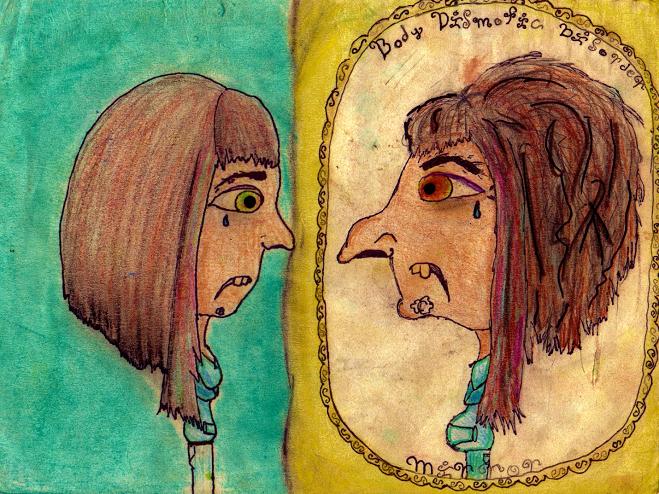Dysmorphophobia Symptoms, Causes, Diagnosis and Treatment

What Is Dysmorphophobia?
It is a form of chronic mental illness wherein a person continuously thinks about the flaw in his or her appearance. The flaw tends to be either perceived or is minor. The appearance is assumed to be shameful enough to result in social isolation.
People with the disorder become extremely obsessed regarding their body image and appearance, say concerned to have a deformity. Their self-assumed flaws makes them distress whereas their obsession affects their ability to work in their daily life. Moreover, they look for exercises or cosmetic procedures that can deal with their perceived flaws, however; even by such, they remain unsatisfied. They remain unsatisfied even after people tries to convince them otherwise.
The disorder is also known as body dysmorphic disorder. Its treatment can include cognitive behavioral therapy and medication.
What Are The Symptoms Of Dysmorphophobia?
Few common symptoms of dysmorphophobia are:
- Concerned about the appearance with intense self-consciousness.
- Examining themselves in a mirror, more often.
- Social isolation because of self-perceived defects.
- Firmly believe to have a flaw in their physical appearance that makes them look ugly.
- Assume that people are noticing them in a negative manner due to their appearance.
Seek assurance regarding their appearance from people.- Resistance to appear or take pictures.
- Pursue cosmetic procedures that results in little to no satisfaction at all.
- Excessive grooming to improve the assumed flaw.
- Seek ways to hide the flaws.
- Comparing their appearance with the ones of others.
Some common features individuals with dysmorphophobia can obsess about are:
- Face: wrinkles, complexion, acne etc.
- Hair: baldness and thinning.
- Vein and skin appearance.
- Genitalia.
- Muscle tone and size.
- Breast size.
What Causes Dysmorphophobia?
What exactly causes dysmorphophobia, is unknown till date. However similar to other mental illnesses, it may consequent due to the combination of the following factors including:
- Family history of dysmorphophobia.
- Brain differences such as defects in brain neurochemistry or structure.
- Environment such as culture and experiences can result in its instigation; say negative experiences regarding the self-image or body.
What Are The Complications Of Dysmorphophobia?
Few complications associated with dysmorphophobiaa are:
- Substance abuse.
- Eating disorders.
- Obsessive-compulsive disorder.
- Anxiety disorders.
- Suicidal behavior or thoughts.
- Depression.
- Mood disorders.
- Repeated hospitalizations.
- Low self-esteem.
- Difficulty attending school or work.
- Social isolation.
- Social phobia.
- Affected relationships.
How Is Dysmorphophobia Diagnosed?
In case the doctor doubts the patient has a mental illness after being detailed with the symptoms, he can conduct a series of psychological and medical exams and tests in order to identify the problem. Few of such tests and exams can include:
- Psychological evaluation.
- Lab tests.
- Physical exam.
How Is Dysmorphophobia Treated?
Treating the disorder can be challenging, particularly for people who do not agree to seek medical assistance or are not actively involved in the care.
Fortunately, treatment can be effective. Two of its foremost treatments include:
- Medications.
- Behavioral therapy.
Usually, the treatment of dysmorphophobia comprises the combination of medications and behavioral therapy.
By : Natural Health News




